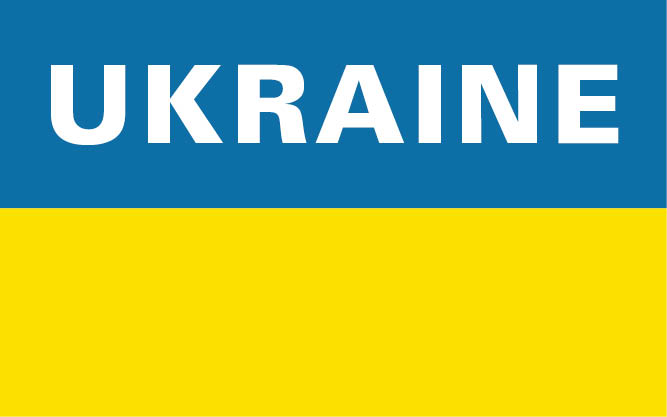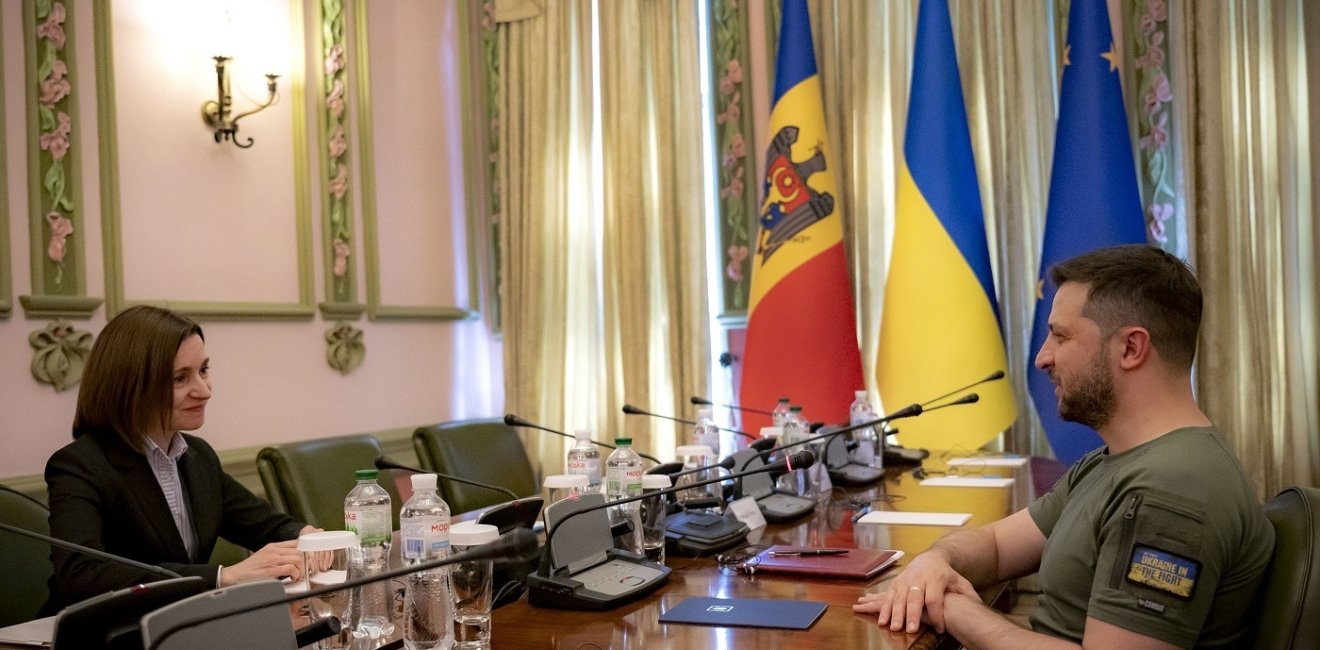
A blog of the Kennan Institute
At the end of March, Lu Shaye, China’s ambassador to France, made a remarkable statement about the status of several countries in Central and Eastern Europe. “These ex-Soviet countries don’t have an effective status in international law,” he stated, observing that “there was no international agreement to materialize their status as sovereign countries.” Lu Shaye further claimed that the legitimacy of Crimea’s annexation “depends on one’s perceptions,” suggesting that the region could be considered “the beginning of Russia.”
Although Beijing hastily walked back this declaration, it seems like a revealing moment of unintended candor on China’s part. The ambassador’s comments highlighted one critical consequence of the war in Ukraine: it has created a permissive environment for the intimidation of countries at Russia’s doorstep.
Indications of this trend were seen in February of this year, with the collapse of the government of Moldova. Natalia Gavrilița, Moldova’s prime minister, who doubted her cabinet still enjoyed the public’s confidence in its ability to deal with the ramifications of the war taking place near its eastern border, resigned. Her decision followed closely on the heels of Russian foreign minister Sergey Lavrov’s comments that Moldova was setting itself up to be “the next Ukraine,” as well as ongoing threats of destabilization by President Vladimir Putin, who said he doubted the country’s constitutional neutrality remained intact. In the wake of Gavrilița’s resignation, the country’s president, Maia Sandu, accused Russia of planning “to overthrow the constitutional order and replace the legitimate power of Chisinau with an illegitimate one.”
Moldova is something of a canary in the coal mine of Russia’s near abroad. Transnistria, a Russia-backed separatist sliver of Moldovan land bordering Ukraine, has long been occupied by Russian forces, which moved in, in 1992, under pretexts that seem eerily familiar to those Russia used to invade Ukraine.
Gavrilița’s Party of Action and Solidarity won by pledging greater alignment with the West. Its demise reflected a tectonic shift whose consequences may reach far beyond Moldova. The crisis in confidence in Chisinau, on the periphery of the Ukrainian war, is a product of America’s diminished will to project power in a way that deters aggressors and preserves the confidence of allies as well as their electorates.
A Neglected Testing Ground
When its longtime allies in Moldova’s Union of Communists and Socialists lost in 2021, the Kremlin alleged “unprecedented interference” in Moldova’s “domestic affairs by U.S. and EU representatives.” Less than two years later, Russia’s warmongering has achieved what those claims could not. Although he maintains pro-Western views, Moldova’s new prime minister, Dorin Recean, is an independent.
Russia welcomed the new head of government by repealing a 2012 decree that had committed Moscow to nonviolent means of determining the “special status” of Transnistria, which are supposed to be grounded in “respect for the sovereignty, territorial integrity and neutral status of the Republic of Moldova.” The act sent a clear message that Russia would not back away from its habit of intimidating smaller states in the region if its interests demand this.
Russia’s invasion of Ukraine has demonstrated just how far Russia is willing to go to force his will on smaller neighbors. Over the past 14 months, Putin has gained a new swath of the territory of a sovereign country—Ukraine—on which he places tremendous strategic value. He has cemented the fealty of the Russian population, which bears the cost of the war. He correctly predicted the inadequacy of American and European sanctions to decide the course of the war and cut deals to bypass those. He has also threatened the use of nuclear weapons to prevent direct confrontations with powerful states committed to Ukrainian independence. By failing to roll back Russia’s advance into Ukraine, the United States especially has sustained harm to its reputation—and fed the Kremlin’s appetite for aggression.
A Narrow and Predictable U.S. Response Rewards Putin
American action consistently lacks what the nuclear strategist Thomas Schelling called “the threat that leaves something to chance.” Shelling crafted that phrase to capture the options the United States had when confronting an aggressor armed with an atomic arsenal. Because neither side can plausibly threaten the use of nuclear weapons, each must resort to signaling that intimidates the other.
In The Strategy of Conflict, Schelling describes the root of such coercion as “the deliberate creation of a recognizable risk of war, a risk that one does not completely control, deliberately letting the situation get somewhat out of hand, harassing and intimidating an adversary by exposing him to a shared risk.” While the United States has assured Russia of “dire consequences” for nuclear missteps, it has kept the specifics private, undermining the integrity and effectiveness of that promise.
Publicly, the Biden administration’s prosecution of the proxy war in Ukraine has become predictable. Each round of debate over what arms to send to Kyiv is followed by hand-wringing on the dangers of escalation. The result is that Putin, far from being intimidated, is rewarded for his threats, which, in turn, incentivizes him to take greater risks. States weaker and more vulnerable than Ukraine should take note.
Eroding the Mystique of American Power
A strategy that relies on exhausting Russian forces ignores Putin’s perception, which arose long before he attempted to conquer Ukraine, that time is on his side. By intermittently giving Volodymyr Zelensky what he needs to fight another day, the U.S. has vowed to win by not losing over the long haul. The credibility of that approach depends on having executed that feat elsewhere. At the very least, avoiding a track record of the opposite—outright capitulation—is key.
But the U.S. has repeatedly shown a failure of resolve in Russia’s near abroad, as well as in other geopolitical arenas. Incursions into Georgia in 2008 and Ukraine in 2014 set a permissive standard that Putin has seized to his advantage, and that must be decisively reversed. Kabul’s fall into Taliban hands, the continuity of Bashar al-Assad’s regime in Syria, Libya’s fragmentation into warring fiefdoms, the hostility of Iraq’s population to American residual involvement there: for Putin, all of these circumstances show that Russia can outlast its chief adversary.
The cumulative effect of these failures has dampened the mystique of American power—the reverence accorded the U.S. government’s declared international agenda. This is a weakness that Putin, and other authoritarian challengers, can exploit.
Putin’s next steps in Ukraine and elsewhere depend on the expectations he harbors as to how decision-makers in Washington will react and how capabilities will be deployed. If he believes the U.S. has no option but to fall into prior patterns of steady resistance followed by piecemeal resolutions and toothless resets, why would he act to preserve the status quo or revert to circumstances he has gambled to change?
It would be easy to dismiss this line of reasoning as mere bluster. Or worse, it might appear reminiscent of a long-abandoned strategy of brinksmanship. Nonetheless, by mobilizing hundreds of thousands of men, Putin has made clear that he is prepared to see Russia bleed a great deal more. He must be persuaded that withdrawing his forces is less dangerous than continuing to fight. Every time an option—sending a much-needed weapon or further munitions—is taken off the table, mounting that argument persuasively becomes harder to make. Even temporary capitulations make future, pledged, contingent responsesless viable in the short term.
In the meantime, governments friendly to the U.S., whose leaders rely on its deterrent strength, are, understandably, beset with doubts. Days after Moldova closed its airspace, NATO Secretary General Jens Stoltenberg assured Moldova’s government the alliance would assist it in resisting Russian threats. If unsuccessful, this effort might lead states in a similar position to find fewer reasons to defy similar pressure from Russia.
The opinions expressed in this article are those solely of the author and do not reflect the views of the Kennan Institute.
Author


Kennan Institute
After more than 50 years as a vital part of the Wilson Center legacy, the Kennan Institute has become an independent think tank. You can find the current website for the Kennan Institute at kennaninstitute.org. Please look for future announcements about partnership activities between the Wilson Center and the Kennan Institute at Wilson Center Press Room. The Kennan Institute is the premier US center for advanced research on Eurasia and the oldest and largest regional program at the Woodrow Wilson International Center for Scholars. The Kennan Institute is committed to improving American understanding of Russia, Ukraine, Central Asia, the South Caucasus, and the surrounding region through research and exchange. Read more

Explore More in Focus Ukraine
Browse Focus Ukraine
Talking to the Dead to Heal the Living

Ukrainian Issue in Polish Elections




